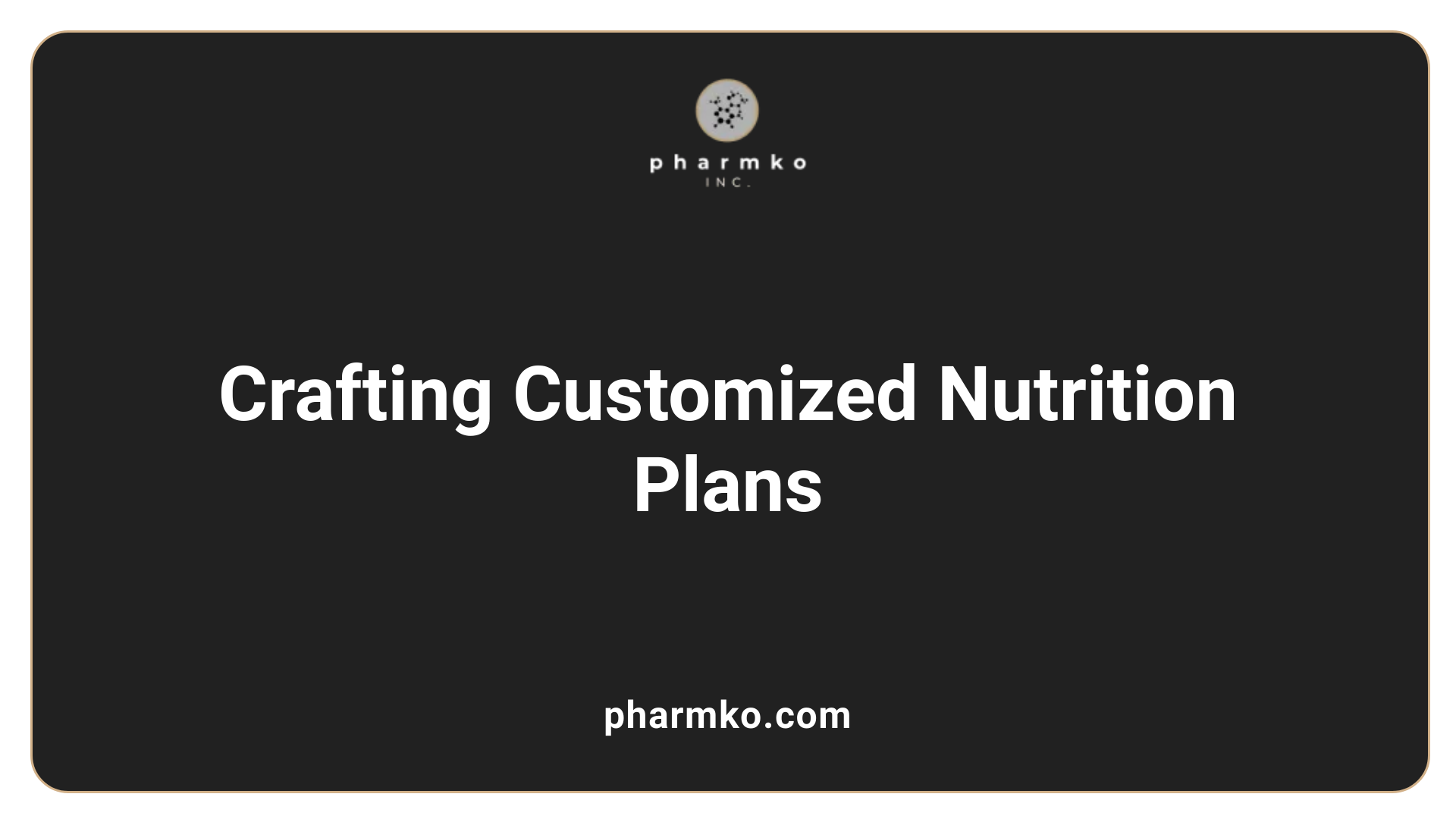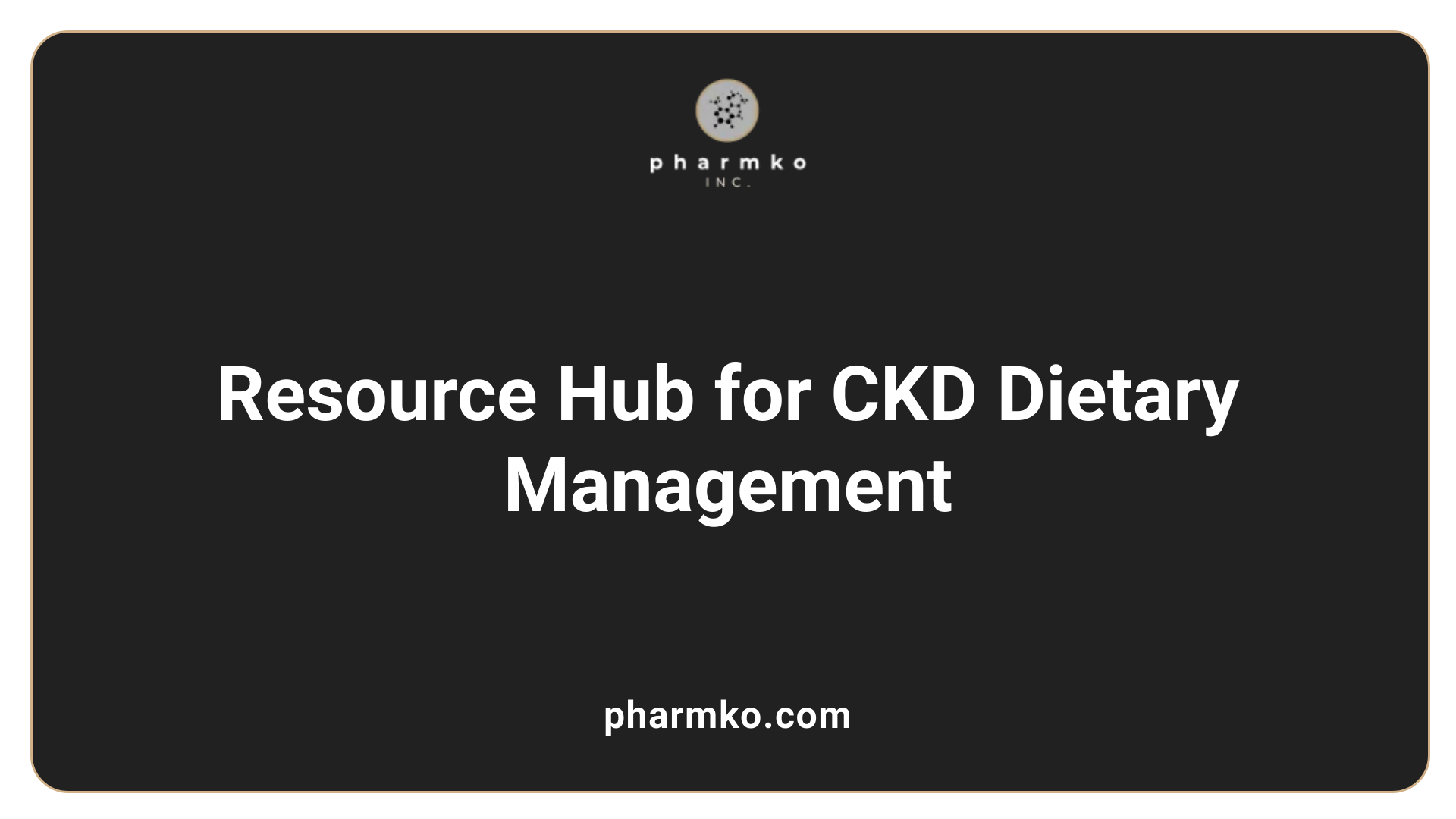Renal patient nutrition services
Introduction to Renal Nutrition Services
Renal dietitians hold an indispensable role in the healthcare management of individuals with chronic kidney disease (CKD). With tailored nutrition plans, they aim to ameliorate the quality of life for patients by slowing disease progression and managing associated health conditions. This article explores the comprehensive services offered by renal dietitians and the pivotal role of Medical Nutrition Therapy (MNT) in kidney health management.
The Role of Renal Dietitians in Kidney Health

What is a renal dietitian and what role do they play for kidney disease patients?
A renal dietitian is a specialized dietitian focusing on the nutritional needs of individuals with chronic kidney disease (CKD). They are integral to a patient's care team, utilizing their expertise to help manage CKD effectively.
These dietitians create individualized eating plans tailored to each patient's condition and dietary preferences. They monitor nutritional health by assessing lab results, such as blood work, weight, and vital signs, adjusting dietary guidelines as needed. This approach ensures that patients maintain a balanced intake of calories, protein, fats, carbohydrates, sodium, potassium, and phosphorus.
How do renal dietitians manage nutritional health?
Monitoring is a vital aspect of a renal dietitian's role. They keep track of patients’ nutrient intake, helping them navigate food choices that promote kidney and cardiovascular health. For instance, dietitians often recommend low-potassium vegetables and lean proteins like fish and egg whites, while advising against high-phosphorus and high-sodium processed foods.
Tailoring dietary plans to improve health outcomes
By collaborating with healthcare providers, renal dietitians develop comprehensive dietary plans that support patients in managing comorbid conditions like diabetes and hypertension. They provide education on food selection and preparation, aiming to make healthy eating enjoyable and sustainable. In this tailored approach, dietitians emphasize the importance of fluid management and may recommend dietary supplements to meet energy or nutritional needs.
Overall, renal dietitians are essential in enhancing the health and quality of life for patients with kidney disease, ensuring their dietary goals align with medical necessities and personal lifestyles.
Personalized Nutrition Plans for Renal Patients

What nutrition plans are recommended for renal patients?
Nutrition plans for renal patients are crafted to support kidney health and address individual nutritional needs. A typical renal diet emphasizes the following components:
- Low Sodium : To prevent fluid retention and help control blood pressure, sodium intake should be minimized. This includes avoiding added salt and processed foods rich in sodium.
- Controlled Phosphorus and Potassium : These minerals require careful monitoring, as excessive levels can cause serious health issues. Patients are often advised to limit foods high in these nutrients, such as dairy and certain fruits and vegetables.
- Tailored Protein Intake : Depending on the patient's stage of kidney disease, protein needs vary. Those on dialysis may need more protein, while non-dialysis patients might require less.
- Fluid Management : Individual fluid intake should be monitored and tailored, especially for patients who struggle with fluid retention.
Importance of personalized nutrition
Personalized nutrition plans are critical in managing chronic kidney disease (CKD). These plans allow patients to incorporate foods they enjoy while meeting medical dietary needs. Regular assessments by renal dietitians help adjust these plans based on lab results, weight changes, and overall health.
Monitoring sodium, potassium, and phosphorus
Monitoring levels of sodium, potassium, and phosphorus is an ongoing necessity for renal patients. High sodium levels can exacerbate kidney issues and lead to high blood pressure. Potassium levels must be carefully controlled as CKD can impair the kidneys' ability to filter excess potassium. Similarly, phosphorus management is vital to avoid bone health deterioration.
Engaging with dietitians ensures patients have guidance on these elements, and how to optimize their diets effectively. Regular updates and nutritional adjustments are essential for maintaining health and quality of life in renal patients.
Medical Nutrition Therapy: A Vital Service

What is Medical Nutrition Therapy (MNT) and does Medicare cover it for CKD?
Medical Nutrition Therapy (MNT) is a specialized service aimed at providing nutritional evaluation and treatment for individuals with chronic conditions, particularly Chronic Kidney Disease (CKD). This evidence-based approach focuses on tailoring dietary plans that align with patients’ medical needs, helping to maintain nutritional status, slow disease progression, and prevent complications.
Medicare Part B covers MNT services for beneficiaries diagnosed with diabetes, kidney disease, or those who have recently undergone a kidney transplant, provided they have a doctor's referral. In the first year of treatment, Medicare covers up to 3 hours of MNT and 2 hours for subsequent years, further allowing more hours when deemed medically necessary. These services are administered by registered dietitians or qualified nutrition professionals, and encompass initial assessments, personalized nutritional therapy, and necessary follow-up visits. Moreover, for patients receiving dialysis, MNT services are integrated into their overall care regimen. For those in rural locations, access to dietary consultations can also be obtained via telehealth, enhancing service availability across various settings.
What are the benefits of MNT for CKD patients?
The benefits of engaging in MNT for CKD patients are significant. Through personalized dietary strategies, MNT helps manage nutrient intake, ensuring that patients maintain a balanced diet low in sodium, potassium, and phosphorus, while addressing protein needs relative to their specific dialysis conditions. This focused nutritional care is essential not only for slowing the progression of CKD but also for improving overall health outcomes. Patients are granted tools like meal plans and food lists that guide healthy choices tailored to their kidney health, fostering better lifestyle habits that support their treatment journey.
How does the role of dietitians enhance MNT?
Registered dietitians are pivotal in delivering MNT. Their expertise involves evaluating each patient's nutritional status and developing individualized meal plans that closely match their health requirements and lifestyle preferences. Dietitians also educate patients about how their food choices can influence lab results, kidney function, and overall health. Regular monitoring and adjustments to dietary recommendations based on clinical evaluations ensure that patients receive ongoing support throughout their treatment, heightening the effectiveness of MNT in managing CKD.
Educational Resources for Dietary Management in CKD

What educational resources are available for managing chronic kidney disease through diet?
For individuals managing chronic kidney disease (CKD), numerous educational resources are available that emphasize the importance of a well-balanced diet. These resources often provide tailored guidance for dietary management, focusing on nutrient intake that supports kidney function, such as:
- Phosphorus Management : Tips for reducing phosphorus found in processed foods.
- Potassium Control : Information on choosing lower potassium foods like apples and rice.
- Protein Intake : Guidance on balancing protein consumption based on the CKD stage, including variations for dialysis patients.
Websites featuring educational articles can offer insights on dietary requirements specific to individuals undergoing hemodialysis and peritoneal dialysis. Many resources also include kidney-friendly recipes that help patients make informed food choices suitable for their health condition.
Importance of dietary education
Understanding the nutritional impact on CKD is crucial for managing the disease effectively. Education provides patients with the knowledge to make decisions that can slow disease progression, prevent complications, and enhance overall health outcomes. By learning about portion sizes, recommended food groups, and nutrient limits, patients can implement dietary strategies that work in synergy with their treatment plans.
Finding a registered dietitian
Accessing a registered dietitian is a critical step in individualized dietary care. Many resources also include directories where patients can find RDs specializing in CKD management. These professionals can conduct thorough nutritional assessments and curate personalized meal plans that align with individual health needs. Coupled with nutrition counseling, the support from dietitians ensures that patients receive both the information and assistance necessary for effective dietary management in CKD.
Should You Consult a Nutritionist for Kidney Disease?

Importance of Professional Dietary Guidance
Yes, you should consider seeing a nutritionist if you have kidney disease. Consulting a registered dietitian who specializes in renal health is vital for individuals with chronic kidney disease (CKD). These experts can provide guidance on how diet impacts your health outcomes and help you navigate the complexities of nutritional management.
Changes in Nutritional Needs with CKD Progression
As CKD progresses, your nutritional requirements evolve. A renal dietitian assesses these changes and creates a tailored eating plan that meets your current health status. They help determine how to manage your intake of sodium, potassium, and phosphorus to avoid complications that can arise from both high and low levels of these minerals. The dietitian also ensures you are getting the right amount of protein and calories to maintain your overall health without compromising kidney function.
Benefits of Consulting a Registered Dietitian
Utilizing Medical Nutrition Therapy (MNT) can delay the progression of CKD and assist in preventing further health complications. Regular consultations with a nutritionist provide ongoing support, allowing for dietary adjustments based on your kidney function and lab results. A renal dietitian will educate you on how various foods affect your body and provide helpful tools like meal plans and recipes tailored to your needs. This personalized approach can significantly enhance your quality of life.
Conclusion: Embracing Nutrition in Kidney Health
Proper dietary management remains a cornerstone in managing chronic kidney disease. With the expert guidance of renal dietitians and the supportive structure of Medical Nutrition Therapy, patients are better equipped to make informed choices that align with their unique health needs. From personalized meal plans to invaluable educational resources, navigating nutrition effectively can significantly enhance the well-being and health outcomes of those living with CKD. Embracing a dietitian's advice ensures that CKD patients can maintain a balanced diet, optimize their quality of life, and effectively manage their condition.
References
- Meet your treatment team: Renal dietitian | American Kidney Fund
- Nutritional Services | Northwestern Medicine
- What Kidney Patients Need to Know About Medical Nutrition Therapy
- Working with a Dietitian - DaVita
- Kidney Disease - Nutrition and Food Services
- Renal Diet: Purpose, Benefits, & Foods | UPMC Kidney Disease ...
- NKF Nutrition Coach | National Kidney Foundation













